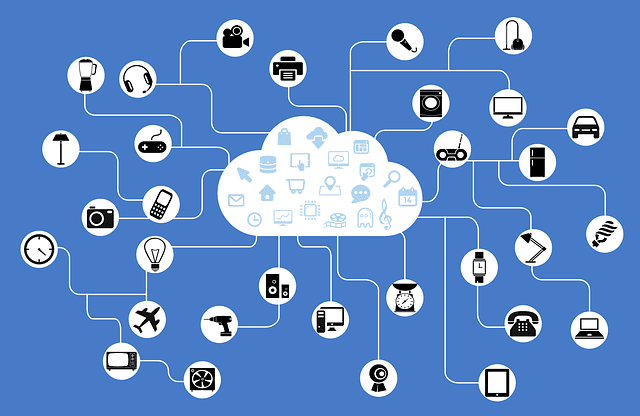Let's work together!
Cloud Computing Services
What is Cloud Computing?
Cloud computing is a service which offers access to hosted services through the Internet without installing them on a device. Cloud resources may include software, applications, data storage, virtual servers, etc. which are stored in data centers on a cloud platform. In the cloud computing model users access a virtual cloud infrastructure, which is made available by a cloud provider. One of the most popular cloud computing services include Google Cloud platform and Microsoft Azure, which work on all the operating systems.
Cloud computing is the fastest growing IT sector, which comes as no surprise as it is a highly cost-effective solution. Cloud users either buy a monthly or annual subscription or they only pay for what they use (utility computing).
Benefits of Cloud Computing Solution in Business
On-demand access from any place and any device. All you need is an internet connection.
With cloud computing services there is no need to possess extensive hardware. Limit the infrastructure expenses and direct your resources where you need them the most.
Cloud services offer unlimited storage capacity which gives opportunity to scale up or down depending on your business needs. Use as much storage space as you need and pay only for as much as you consume.
In case of unexpected problems or hardware damage, stored data will be safe in a cloud and it will be easy to restore.
Cloud providers take data security very seriously and they make an effort to ensure data security. As data theft is a major concern for all businesses, many cloud providers employ top-notch cyber security specialists who monitor the system and search for potential threat. Additionally, many extra safety features are offered to enhance the privacy.
Cloud Service Models

Software-as-a-Service (SaaS)
Software-as-a-Service is a model where a user can utilize cloud-based applications straight from the web browser. The user accesses the cloud by the Internet and all the data is located and stored on the cloud data center. Complete software solutions are delivered by a service provider, who is also responsible for all the hardware and software maintenance. It is a solution which offers the benefits of using an app almost instantly and with minimal upfront cost.
SaaS examples: e-mail, calendars, video conferencing, media streaming services (e.g. Netflix), documents storing and sharing.
Platform-as-a-Service (PaaS)
It is a platform which provides advanced tools for customers to create customized solutions. IT is primarily intended for developers and programmers to develop and manage applications.
PaaS examples: SAP Cloud, Microsoft Azure, Amazon Web Services.
Infrastructure-as-a-Service (IaaS)
It is a cloud service where a supplier provides their customers with an on-demand access to computing resources which enable for example to run an application or store data. This allows businesses to eliminate an on-premises computing infrastructure, freely scale up or down to flexibly adjust to the market dynamics and pay only for what they use.
IaaS examples: Alibaba Cloud, Microsoft Azure, Hewlett Packard Enterprise, Oracle Cloud Infrastructure,IBM Cloud.
Mobile Backend-as-a-Service (MBaaS)
It is a service which is all about the server-side functions and it provides a ready-made backend solutions for app development. It typically includes data storage, API management, push notifications, authentication, scripting.
MBaaS examples: Amazon Web Services, Microsoft Azure, Firebase, Back4App, Backendless.
Serverless Computing
This function is executed by developers and programmers who write code in the cloud. The cloud provider takes care of all the infrastructure. Serverless computing is a budget option as a customer only pays for the part of the code which they use on their computer.
Serverless computing examples: Amazon Lambda, Azure Functions.
Types of Cloud Computing
A public cloud enables anyone to access data centers infrastructure through the internet. It is a fully managed service which is owned, administered and secured by external cloud providers.
Private clouds are intended only for a single organization. The owner manages and maintains their cloud infrastructure and handles the cloud security.
Hybrid clouds are a complex IT environment. They are a combination of public and private cloud solutions which can interact together and therefore can be scaled on-demand. In a hybrid cloud an app can move between separate environments. All the cloud environments are governed by an integrated cloud management platform. However, the user is responsible for security of data passing when it moves between private and public clouds.